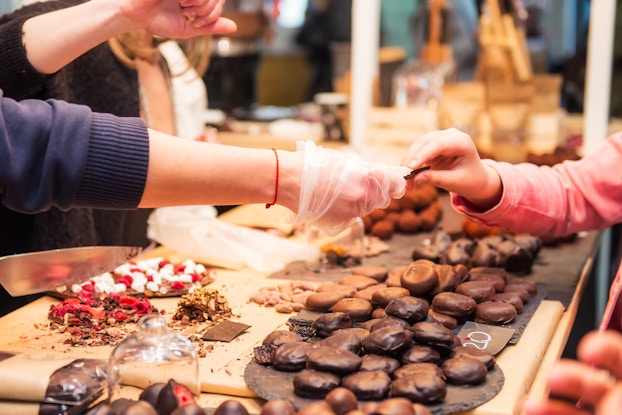
Food samples, bag-your-own bakery items, in-store makeup applications, tester tubes of lipstick, round-the-clock shopping and other amenities store customers took for granted may not survive the coronavirus crisis.
The crisis shut thousands of stores across the country, as retailers and government officials reacted to limit the spread of the COVID-19 disease. Stores that remained open, such as supermarkets, moved quickly to reassure shoppers by suspending practices that could spread germs.
As stores reopen, and with health officials warning that the virus could remain a threat well into next year, the question becomes: Why would retailers resume those practices?
Stores and other businesses will need to respond to a population that overnight became more concerned about hygiene, and more concerned about crowds.
“On the other side of this [crisis], are people going to be a lot more careful? The answer is yes,” Paco Underhill, head of behavioral research and consulting firm Envirosell, told CO—.
“Is people’s radar for hygiene going to be more heightened? The answer is yes,” said Underhill, author of "Why We Buy: The Science of Shopping," and other studies of shopper psychology. “Are we going to recognize that being prepared for stuff like this is eminently more important, and that we need a renewed focus on people keeping healthy? Yes.”
In the beauty sector, where makeup applications and demonstrations and other high-touch store experiences are a key part of the sales strategy, shoppers are likely to increasingly move to e-commerce channels and away from stores, Tatiana Perim, principal in the consumer practice of global strategy and management consulting firm Kearney, told CO—.
“We expect to see better performance from brands that excel in the online space and brands that have unique digital marketing capabilities,” Perim said.
Companies with a focus on virtual retail experiences and tech developments may have better chance to survive in the next couple of months.Tatiana Perim, principal, Kearney
Coronavirus Guide for Small Businesses
CO— is working to bring you the best resources and information to help you navigate this challenging time. Read on for our complete coronavirus coverage.
The virus, she said, has also increased awareness of cleanliness in the beauty category, affecting product testers and store services. “Companies with a focus on virtual retail experiences and tech developments may have better chance to survive in the next couple of months,” she said.
Here are the top store practices that retailers are rethinking as a result of the crisis:
Food sampling
Costco’s decision to stop handing out food samples in its stores in early March caught the attention of a lot of shoppers and convinced them that this was a serious crisis. Trader Joe’s, and a host of supermarket chains, including Stop & Shop, Hy-Vee, Albertsons and Fred Meyer, as well as neighborhood gourmet shops and bakeries, also halted the practice. While food stores have long operated under health and hygiene rules with their samples, and even though consumers love the free food, it is unlikely samples will return.
Round-the-clock shopping
Walmart and Target, two of the country’s biggest retailers, limited hours at some of their stores to allow for additional sanitizing and deep cleaning overnight. Reaction from shoppers on social media has been, “Why aren’t you doing this all the time?” Retailers can incorporate overnight deep cleaning into their sales pitches, one that may prove to be more attractive to customers than 24-hour shopping.
Makeup applications, demonstrations and product testers
Beauty retailers Ulta and Sephora initially ceased in-store makeup applications and beauty services as news of the first U.S. cases spread, and then ultimately decided to close all of their stores. Both retailers urged customers to use their online makeup guides instead. It’s likely that Sephora and Ulta, as well as department store makeup counters, will have to figure out new ways to sell makeup in a no-touch world.
Contact-free deliveries
Supermarket chains eliminated the need to sign for deliveries or parking lot pickups during the crisis. Albertsons switched to a “contact-free” system where drivers can sign for the customer. Consumers are likely to insist that these changes remain in place even after the crisis passes.
-Barbara Thau contributed to this story.
CO—is committed to helping you start, run and grow your small business. Learn more about the benefits of small business membership in the U.S. Chamber of Commerce, here.









